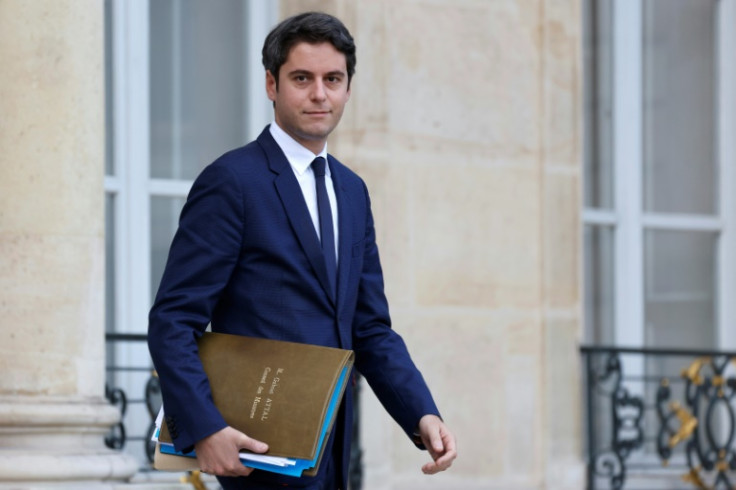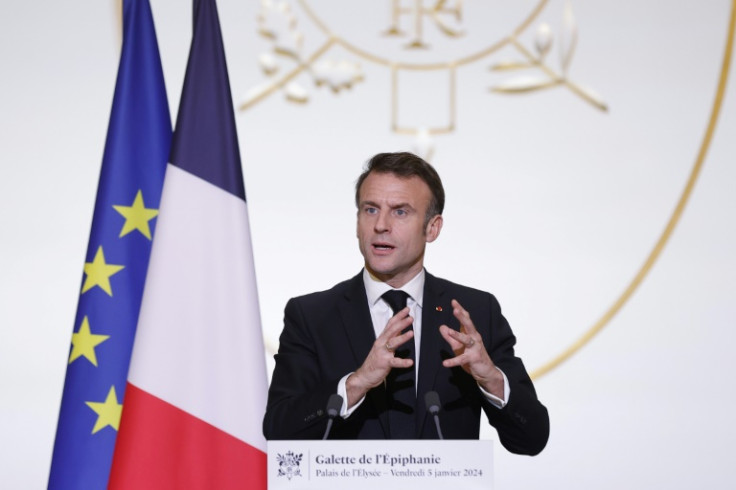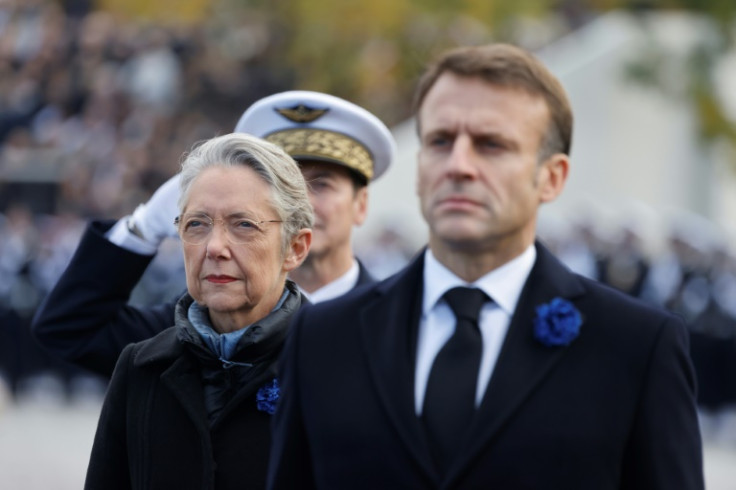
French President Emmanuel Macron on Tuesday was expected to name a new prime minister in a long-awaited cabinet reshuffle to reboot the final three years of his presidency.
After days of intense behind-the-scenes manoeuvring, Prime Minister Elisabeth Borne resigned Monday evening, with Education Minister Gabriel Attal, 34, emerging as the favourite to succeed the 62-year-old.
If appointed, Attal would be France's youngest ever and first openly gay prime minister.
A source close to Macron said the announcement would come Tuesday morning.
The absence of the swift announcement fuelled talk that heavy-weight government figures might be involved in intense bargaining over Attal.
However sources close to those said to be behind the tensions, including Interior Minister Gerard Darmanin and Finance Minister Bruno Le Maire, vehemently denied this.
The reshuffle comes ahead of the Olympic Games in Paris and European parliament elections this summer where Macron's centrist forces risk defeat at the hands of the far-right under Marine Le Pen.
Commentators see the reshuffle as essential to relaunch Macron's centrist presidency for its last three years and prevent him becoming a "lame duck" leader after a series of crises.
Since he defeated the far right to win a second term in 2022, Macron has faced protests over unpopular pension reforms, the loss of his overall majority in parliamentary elections and controversy over immigration legislation.
While Macron cannot run again in 2027 presidential elections, relaunching his government is seen as crucial to help prevent Le Pen becoming president.
Other possible candidates to succeed Borne include 37-year-old Defence Minister Sebastien Lecornu and 43-year-old Julien Denormandie, a former agriculture minister.
But a source close to the government said that Attal was now the favourite.
The conservative daily Le Figaro said Borne was leaving a political situation "that remains as fragile as ever.
"Changing a face at the top doesn't change the overall picture," the newspaper said, adding Borne's successor was facing "an overwhelming pile of political emergencies" including the task to unite a fragmented nation.
Borne's resignation letter to Macron, a copy of which was seen by AFP, hinted that she would have preferred to stay in her job.
"While I must present the resignation of my government, I wanted to tell you how passionate I was about this mission," she wrote.
Macron thanked Borne, only the second woman to lead the French government, for "work in the service of our nation that has been exemplary every day".
Under the French system, the president sets general policies and the prime minister is responsible for day-to-day government management, meaning the latter often pays the price when an administration runs into turbulence.
European Parliament elections in June will pose a major test, with Macron's Renaissance party risking embarrassment at the hands of Le Pen's National Rally (RN).
Attal is a more political figure than the technocratic Borne, and polls have shown him to be the most popular government minister.
If named, he would go toe-to-toe ahead of the European elections with another rising star of French politics, the even younger Jordan Bardella, just 28, who is now party leader of the far-right RN.
Other key posts are also subject to uncertainty, in particular that of Darmanin, 41, a right-winger said to covet the post of foreign minister held by Catherine Colonna.
Macron likes "keeping all options open until the last moment", a source close to the Elysee said.
The new head of government will be the fourth prime minister since 2017 under Macron, who is accused by critics of micro-managing and centralising power in the Elysee.









